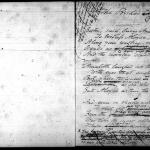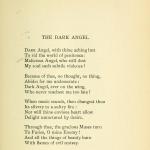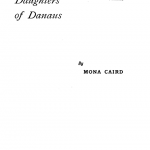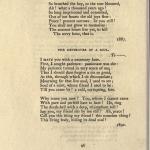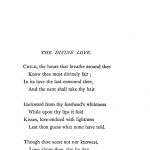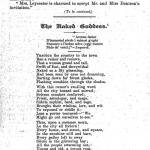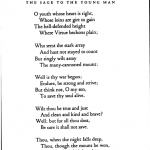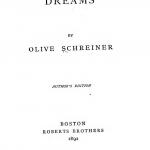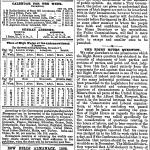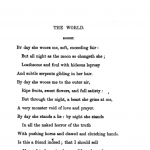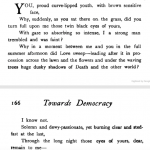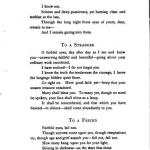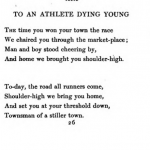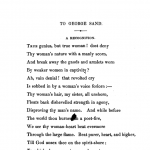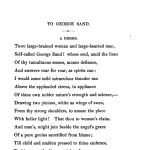All items
Edward Carpenter published this poem in praise of queer desire in his an anthology Towards Democracy.
This excerpt from Dante Gabriel Rossetti's poem, The Bride's Prelude", shows a coded Victorian language that speaks about the queering of race and refer's to the bride's room as a "chamber", suggesting some sort of forced or arranged marriage. There is a lot of reference to gold and jewels on the bride's head in this first section of Rossetti's poem, which alludes to Egyptian culture. None of Rossetti's poems really addresses or blatantly discusses the mullatto woman or Black woman (or any woman of color, for that matter), but in these codes that reference different geographical parts of the world and how it is used in juxtoposition with palesness and whitness form this queering of race when compared to Euro-centric, white features that are ideal in Victorian England.
Lionel Johnson's poem describes queerness as an evil angel he must fight in order to live up to his religious ideals.
Lionel Johnson wrote this bitter sonnet in 1892, supposedly to repudiate his former friend, Oscar Wilde, whom he had introduced to Lord Alfred Douglas.
This text is an excerpt from Anne Lister's original diaries that was written on September 20th, 1824. The title of the text is "No Priest But Love- Excerpts From The Diaries of Anne Lister." These diary entries were written between 1824 and 1826 and act as window into the life a lesbian who lived during the period right before the Victorian Era. Her diary entries depict her life in Yorkshire, Northern England and document her sexual and romantic relationships with several different women. Her entries account for her daily life, her relationships, her gender identity, the harassment she faced as a lesbian, along with her economic struggles.
This short diary excerpt by the ten-year-old Emily Pepys was found and published in a larger collection,The Journal of Emily Pepys, for the first time by Gillian Avery in 1984.
Alfred Tennyson’s poem “The Mermaid” was originally published in the book Poems, Chiefly Lyrical which was the first publication of a collection of Tennyson’s earliest poetic works. It was published in 1830 when Tennyson was only 21 years old and the collection generally received mixed reviews. “The Mermaid” itself is not one of Tennyson’s most famous poems, but it displays forms of non-heteronormative sexuality and an early representation of a femme fatale type character prior to the publication of “Lady of Shalott.”
The first half of a poem, reprinted in the monthly publication Our Corner
A newspaper article discussing the differing treatment from the police of upper class and lower class men implicated in the Cleveland Street scandal.
Edward Carpenter published this poem in praise of queer desire in his literary work "Towards Democracy."
Edward Carpenter was a British poet, socialist, and LGBT activist. He published "To A Stranger" in his book Towards Democracy. In the poem, he addresses a presumably queer person telling them that eventually their love will be recognized.



